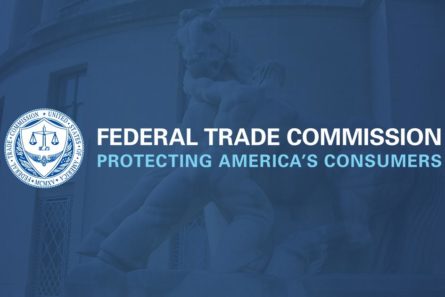SCOTUS Preview: Axon v. FTC
Svetlana Gans and Josh Zuckerman

On November 7, the Supreme Court will hear oral argument in Axon Enterprise, Inc. v. Federal Trade Commission. The case presents a narrow but vital question of administrative law. Do district courts have jurisdiction to hear “constitutional challenges to the Federal Trade Commission’s structure, procedures, and existence?” Or must plaintiffs first raise such constitutional challenges in administrative proceedings before the FTC?
The FTC is a federal agency responsible for investigating, enforcing, and adjudicating alleged violations of federal antitrust and consumer protection laws. Its five commissioners are not subject to at-will removal by the president; under federal statute, they can be removed only for good cause, i.e. “inefficiency, neglect of duty, or malfeasance.” The commissioners appoint administrative law judges (“ALJs”), who preside over administrative proceedings. ALJs also can be removed only for good cause. ALJ decisions are appealed to the Commission—the same entity that voted to authorize the complaint in the first place. Unsurprisingly, in recent decades, the Commission has ruled in favor of every complaint it had authorized.
Axon Enterprise arises out of the acquisition by Axon, a manufacturer of law-enforcement technologies, of a competitor called Vievu. The FTC launched a lengthy antitrust investigation and offered to end the investigation if Axon provided its intellectual property to Vievu. Axon responded by filing a lawsuit alleging that administrative adjudication by the FTC violates the Fifth Amendment’s guarantee of due process and that ALJs are unconstitutionally insulated from removal.
The district court held that it lacked jurisdiction to hear Axon’s lawsuit. A divided panel of the Ninth Circuit affirmed. Writing for the majority, Judge Kenneth Lee held that the FTC Act implicitly bars judicial review of Axon’s constitutional challenges to the FTC’s structure unless Axon first presents its claims in FTC administrative proceedings. The majority concluded it was bound by Supreme Court precedent instructing that the Act’s detailed administrative adjudication scheme can constitutionally preclude district court jurisdiction because parties can eventually obtain meaningful relief from a court of appeals. Judge Bumatay dissented. In his view, Axon is not assured of obtaining meaningful relief. Unless the FTC issues an appealable cease-and-desist order against Axon, which is far from certain, “its actions are largely immune from judicial review.”
Axon’s Supreme Court brief argues that the FTC Act does not implicitly divest district courts of jurisdiction over challenges to the FTC’s structure. The Supreme Court has never construed a statute to “strip district courts of their power to adjudicate those kinds of existential challenges to an agency,” and there is no point in requiring those challenges to be initially presented in FTC proceedings because the FTC cannot provide injunctive or declaratory relief. The FTC’s brief retorts that the FTC Act does in fact forbid judicial review by district courts. Further, it argues, even if district courts had jurisdiction, the Administrative Procedure Act allows judicial review only when there is final agency action, and Axon therefore lacks a cause of action to bring its lawsuit.
Axon has significant implications. The Ninth Circuit’s ruling impedes constitutional challenges to administrative action. As even the majority acknowledged, it “makes little sense to force a party to undergo a burdensome administrative proceeding to raise a constitutional challenge against the agency’s structure before it can seek review from the court of appeals.” And as Judge Bumatay observed, Axon is forced “to antagonize the FTC into prosecuting the enforcement proceeding against it and then lose in that forum—all the while, further subjecting the company to the harm it seeks to avoid,” namely the cost and burden of allegedly unconstitutional administrative proceedings.
In contrast, a ruling for Axon would facilitate constitutional challenges to agency structures. For instance, Axon will be argued alongside Securities and Exchange Commission v. Cochran, which addresses a similar issue: whether district courts have jurisdiction over a suit that seeks to enjoin SEC proceedings based on an allegedly unconstitutional provision concerning the removal of ALJs. Should the SEC lose, targets of enforcement actions could immediately sue in district court rather than having to first incur the financial and reputational costs of years of administrative proceedings. This would promote efficiency and strengthen judicial oversight of the administrative state, thereby ensuring that independent federal agencies, though unaccountable to the president according to Supreme Court precedent, are at least accountable to the courts and the Constitution.

Authors
Topic
Antitrust & Consumer Protection
Sponsor
Federalist Society’s Corporations, Securities, & Antitrust Practice Group
The Federalist Society and Regulatory Transparency Project take no position on particular legal or public policy matters. All expressions of opinion are those of the author(s). To join the debate, please email us at [email protected].





